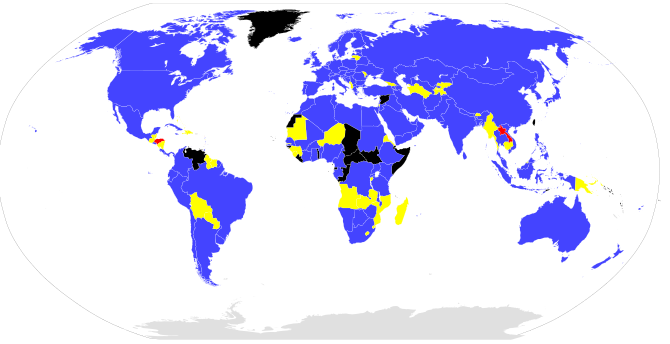For a Personal Qualification Business School to Be Accredited, it must:
1) Require Relevant Courses from an accredited, ISO certificated, or government regulated institution. 2) Exams proctored and provided by an Accredited Institution 3) Require sufficient skill and experience. 4) Continuing Education each year is part of the ongoing certification process. 5) Each member adheres to ethics guidelines. 6) Requires the earning of an accredited degree. 7) Require licensing if the government requires it.
The IACSB Certification Training Accreditation is linked to ISO 29993 Standards
Scope of ISO 29993: Learning services outside formal education.
•The standard contains requirements on:
– Qualifications Learning and The way learning needs are determined
–The design of learning services
–The way learning services are provided
–The monitoring of the delivery of the learning services
–Evaluations carried out by learning service providers
–The Management of the learning service provider.
The Business School must Comport to ISO 21001 Standards
ISO 21001 is an international standard that specifies requirements for Educational Organizations Management Systems (EOMS). This standard provides a framework for educational institutions, such as schools, colleges, universities, and training centers, to establish, implement, maintain, and continually improve their management systems. ISO 21001 focuses on enhancing the quality and effectiveness of educational services by providing a systematic approach to educational management. Here are some key aspects of ISO 21001 standards:
- Educational Organization’s Context: ISO 21001 requires educational institutions to define their mission, vision, values, and objectives. They must consider the needs and expectations of learners, their families, regulatory authorities, and other relevant stakeholders.
- Leadership and Governance: Educational organizations must establish leadership and governance structures that support the achievement of their educational objectives. This includes appointing responsible individuals, defining roles and responsibilities, and ensuring leadership commitment to quality education.
- Learner-Centric Approach: ISO 21001 emphasizes a learner-centric approach. Educational institutions are required to identify and understand the unique learning needs and expectations of individual learners and provide educational services that meet these requirements.
- Competence of Personnel: The standard mandates that personnel, including teachers and staff, should be competent and qualified to deliver quality education. This includes ongoing professional development to ensure the effectiveness of educators.
- Curriculum Development and Implementation: ISO 21001 encourages institutions to design and develop curricula that align with educational objectives and meet learner needs. The standard also emphasizes the importance of implementing these curricula effectively.
- Support Services: Educational organizations must provide appropriate support services to learners, addressing their specific needs related to accessibility, well-being, and academic support.
- Monitoring and Evaluation: ISO 21001 requires the establishment of a systematic process for monitoring and evaluating the effectiveness of educational services. This includes the collection and analysis of data to make informed decisions and improvements.
- Continuous Improvement: The standard emphasizes a culture of continuous improvement, where institutions continually assess and enhance their educational services based on feedback and data.
- Legal and Regulatory Compliance: ISO 21001 mandates compliance with relevant legal and regulatory requirements in the educational sector.
- Communication: Educational institutions must ensure effective communication with learners, their families, and other stakeholders to keep them informed about educational programs, progress, and changes.
- Documentation and Record Keeping: ISO 21001 requires institutions to maintain proper documentation and records related to educational processes and outcomes.
- Risk Management: The standard encourages institutions to identify and mitigate risks that may affect the quality and delivery of educational services.
ISO 21001 provides a structured approach for educational institutions to enhance their educational services, improve learner satisfaction, and demonstrate their commitment to quality education. It aligns with other ISO standards, such as ISO 9001 (Quality Management Systems), to ensure consistency in quality management principles across different sectors. Implementing ISO 21001 can help educational organizations establish a robust management system that meets the needs of learners and stakeholders.
